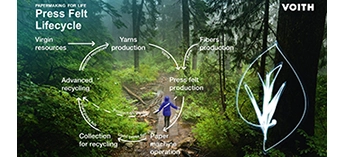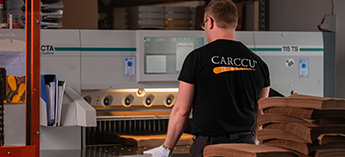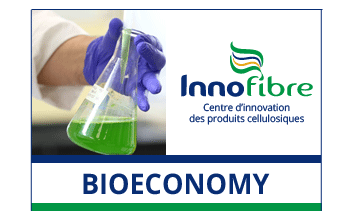In The Spotlight
All parties are pleased that they have turned the page on these long-running litigations
MEMPHIS, Tenn., April 25, 2024 - International Paper (NYSE: IP) today reported first quarter 2024 financial results.
Tim Kirchen has been appointed Executive Vice President, UPM Raflatac.
Sales were EUR 483.7 million (542.1).
For most of Metsä Group’s business areas, the market situation in the first quarter of 2024 was stronger than at the end of the previous year.
Klabin, a leading Brazilian producer of packaging solutions, celebrates the operational launch of its highly anticipated Figueira Unit in Piracicaba, São Paulo.
Suzano Ventures, the corporate venture capital arm of Suzano, the world’s largest market pulp producer, has made a strategic investment into the Canadian materials science startup, Bioform Technologies.
British Columbia is streamlining the process for salvaging timber damaged by wildfires.
Metsä Board, part of Metsä Group, has made an investment decision to renew the folding boxboard machine at Simpele, which will improve the quality of folding boxboard and increase production efficiency.
Feature Articles
Top Stories
All parties are pleased that they have turned the page on these long-running litigations
MEMPHIS, Tenn., April 25, 2024 - International Paper (NYSE: IP) today reported first quarter 2024 financial results.
Sales were EUR 483.7 million (542.1).
For most of Metsä Group’s business areas, the market situation in the first quarter of 2024 was stronger than at the end of the previous year.
Klabin, a leading Brazilian producer of packaging solutions, celebrates the operational launch of its highly anticipated Figueira Unit in Piracicaba, São Paulo.
British Columbia is streamlining the process for salvaging timber damaged by wildfires.
April 16, 2024 - Earlier today, Forest Products Association of Canada (FPAC) President and CEO Derek Nighbor released the following statement in response to the 2024 Federal Budget tabled by Deputy Prime Minister and Minister of Finance, the Honourable Chrystia Freeland.
Cellulose packaging is booming. In recent years, we've seen the arrival - on the Quebec market - of cellulose packaging from other regions of the world.
With the ongoing momentum in corporate sustainability initiatives, the collaboration between pulp and paper companies and major corporations to create sustainable alternatives for their product lines is on the rise.
Sustainable forest management is essential to the Canadian paper packaging industry and its circular economy.
In a blog article last year, I wrote about the potential of high-temperature heat pumps (HT-HPs) to save energy in papermaking.
When looking forward at the forces that are likely to drive the direction of the pulp and paper industry over the next 15 years, decarbonization and supporting a circular economy are at the top of the list.
Colombian tissue manufacturer C.Y.P. Del R. S.A. has started up a complete AHEAD 1.8 tissue line supplied by Toscotec at its mill in Risaralda.
Recycling is a central component of Voith Paper’s sustainability strategy and forms the basis for a sustainable paper industry.
In an era where environmental consciousness is not just a trend but a necessity, businesses across the globe are taking significant strides towards sustainability
Benefit from the expertise of the Groupe PMI, a leader in turnkey solutions for your industrial projects and the maintenance of your process equipment.
More vacuum alone may not be the answer
Multiple-barrel pressure filters are designed to remove contaminants from a liquid filtration process while providing high cleaning efficiency, low flow restrictions, and easy maintenance.
Tim Kirchen has been appointed Executive Vice President, UPM Raflatac.
Recognising the importance of recyclability for the circular economy, Sappi has established a recyclability testing laboratory within its R&D Department.
Suzano Ventures, the corporate venture capital arm of Suzano, the world’s largest market pulp producer, has made a strategic investment into the Canadian materials science startup, Bioform Technologies.
Early bird pricing is ending soon.

































































